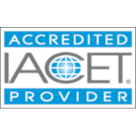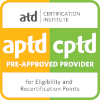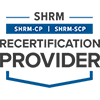Certificate Suite Details
Key Features
- Mobile-friendly
- Audio-enabled
- Badge and credit-awarding
- Real-world case studies
- Fully accessible
- Games & Flashcards
- Expert-supported
- Video content
Certificate Preview
Certificate Description
Learner Feedback
Courses Included in this Certificate
Course Description
Leaders are increasingly being held responsible and accountable for the manner in which they lead—and if they are adhering to ethical behavior when they make decisions. Organizations have learned that the costs of unethical actions can be high, both legally, and from the perspective of brand image and reputation. At the same time, research is showing that good business ethics translates to good business results. Leading in an ethical manner can provide a clear advantage in building a thriving enterprise.
Course Credits
Course Description
Corporate social responsibility (CSR) is the concept of organizations taking responsibility for their impact on society and the environment. Businesses which embrace CSR promote the public interest through what they do (for example, encouraging community growth and development) and what they refrain from doing (for example, eliminating or avoiding practices that harm stakeholders, regardless of whether such practices are legal). CSR is the inclusion of the public interest into corporate decision-making.
Course Credits
Course Description
Sustainable management is managing a firm so that it generates profits for its owners, protects the environment, and improves the lives of the people with whom it interacts. The business case for sustainable management is that it can help a company's long-run profitability and success. This course provides an overview of sustainable management, and discusses the role of government and regulation in sustainable management practices.
Course Credits
Course Description
In order to pursue the goal of sustainability, corporate and government leaders must manage companies and economies in terms of balancing and optimizing the triple bottom line of social, environmental, and economic impacts. The Triple Bottom Line concept, also known as the "3Ps" ("People, Planet, and Profit"), is both a metaphor for thinking about sustainability as well as the basis for a practical framework for accounting and reporting on organizations' activities and impacts. The TBL concept borrows the well-known and widely accepted idea of financial accounting and its "bottom line" and expands it.
Course Credits
Course Description
One well-known business saying is that you can't manage what you can't measure. With the growing importance of sustainable management, business leaders must find the appropriate tools and techniques for measuring their organization's sustainability performance. This course reviews the measurement of sustainable management practices and performance.
Course Credits
Notes
This course has an "Ask the Expert" feature, which submits your questions directly to an expert in the field you are studying. Questions are answered as quickly as possible and usually within 24 hours.
As an Accredited Provider, MindEdge offers for its learning events that comply with the Continuing Education and Training Standard.
Learners must achieve an average test score of at least 70% to meet the minimum successful completion requirement and qualify to receive credit. Learners will have three attempts at all graded assessments.



